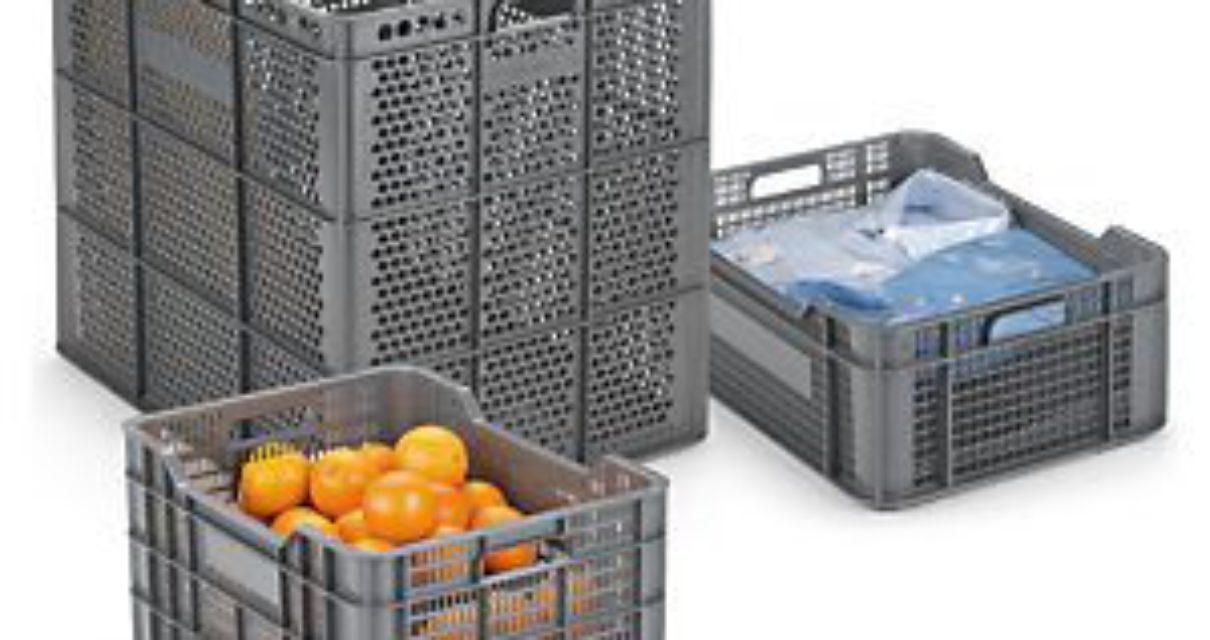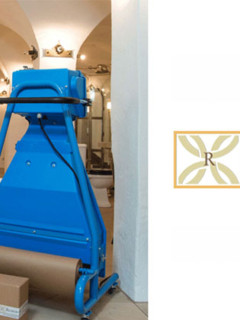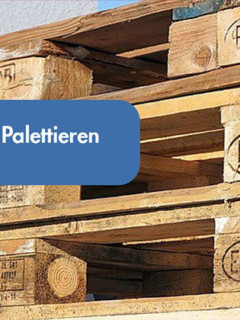Among the acronyms that move the business world, “CSR” has occupied an important place for several years. Behind these three letters lies a simple concept: to limit a company’s negative impact on people and the environment – and at the same time to ensure the company’s competitiveness.
This article helps you take stock of your CSR concept and gives impulses on how to reconcile CSR and logistics – and provides insights into RAJA’s CSR Report 2022.
What is CSR?
The abbreviation CSR stands for “Corporate Social Responsibility”.
In 2011, the concept was defined for the first time by the European Union. The following definition of CSR can be found in their communication:
In short, we can define CSR as a set of approaches that enable a company to contribute to sustainable development and have a positive impact on society.
What does the CSR law say?
RAJA, as a European group under French management, has a very particular perspective on this issue. Because: CSR is a concept integrated into French law.
It is found in …
- Article 1833 of the Civil Codewhich mentions that the corporate purpose of all companies now includes taking social and environmental concerns into account.
- Article 1835 of the Civil Codewhich stipulates that companies that wish to do so can adopt a purpose in line with their CSR policy.
CSR in German companies?
Not quite on the same level yet. A study by the personnel service provider Randstad 2020 looked at the topic of CRS, among other things – and found this picture for the German-French comparison:
Source: Randstad study “Competitiveness of German and French industrial companies”
.The study also shows that only 58% of German companies have set ethical guidelines for themselves, compared to 73% in France. Clearly: this figure only proves whether these guidelines have been formulated and have found their way into the company values, but not whether these values are lived. And awareness of these issues is growing. This is also reflected in the fact that young, well-trained professionals attach a great deal of importance to CSR aspects when deciding on an employer. So in times of a shortage of skilled workers and an employee market, positioning oneself on sustainability in terms of ecological, social and cultural resources is a real competitive advantage.
Legal basis of CSR and Supply Chain Sourcing Act – what is it?
In Germany, the so-called CSR Directive Implementation Act has been in force since 2017. In particular, large listed companies with more than 500 employees are required to disclose information on environmental, social and labour issues. The aim is to respect human rights and fight corruption and bribery.
(https://www.csr-in-deutschland.de/)
In addition, the German Bundestag 2021 has drafted a law on corporate due diligence in supply chains. This law will come into force on 01.01. 2023 with the aim of “better protecting human rights and the environment in the global economy”.(haufe.de)
A good opportunity for German companies to adapt structures and organisations within the company to this law and, in addition, either to develop and formulate CSR guidelines or to revise existing CSR guidelines.(haufe.de)
These guidelines regulate the topic of CSR in Germany:
- ILO Declaration of Principles concerning Enterprise and Social Policy: These contain principles for governments and enterprises on safety, labour law, working conditions and combating social ills such as forced labour and child labour. Businesses can consider the principles as guidelines.
- OECD Guidelines for Multinational Enterprises: These provide entrepreneurs with a code of conduct for foreign investment and for working with foreign suppliers, and describe what is expected in their global activities in dealing with trade unions, protecting the environment, fighting corruption or protecting consumer interests.
- ISO 26000: This is a guide that provides basic orientation for the implementation of CSR.
- ISO Standard 45001:2018 “Occupational health and safety management systems – Requirements with guidance for use”. It is used to implement streamlined and efficient processes to improve occupational safety in global supply chains.
(Source: haufe.de)
ISO 26000 and the pillars of CSR
It is the ISO 26000 standard, which regulates business standards and defines the scope of corporate social responsibility.
In this context, 7 areas of CSR are highlighted:
- Corporate governance
- Environment
- Human rights
- Labour practices
- Fair operating and business practices
- Consumer concerns
- Community involvement and development
(Source: https://www.business-wissen.de/hb/din-en-iso-26000-als-leitfaden-und-standard-der-csr/)
To obtain the ISO 26000 standard, companies must follow these 7 pillars closely. However, many companies follow these guidelines without wanting to achieve this standard.
Although the CSR approach is often driven by the initiative of the company’s management, the transport and logistics department plays a crucial role in implementing this strategy.
RAJA and CSR
On our group website we explain our own CSR concept in detail. The understanding of what underlies the approach is explained by Danièle Kapel-Marcovici, CEO of the family business RAJA :
A few concrete examples:
- Sustainable purchasing policy – 86% of our products are sourced in Europe. This guarantees short transport distances.
- Constant expansion of the number of sustainable products (in line with the 5Rs – see explained below).
- RAJA’s very wide product range means that our customers can have “everything” or most of their needs supplied by one supplier. Bundled and coordinated delivery from one rather than several small suppliers from different regions means fewer transport miles and less CO2
- RAJA selects its suppliers according to CSR criteria. 100% of our suppliers have signed the Responsible Sourcing and Sustainable Development Charter.
- Our central warehouse in Tongeren has retrofitted a photovoltaic system on the roof, which allows it to produce self-sufficient energy for all warehouse processes.
- The proportion of women among RAJA’s employees is 51%. The pleasant working atmosphere results, among other things, from practised equality, regular training in personnel development, active participation of all employees in the company and in topics such as conflict culture, error culture, communication …
- Rajapack DE (as well as the RAJA Group) assumes social responsibility by supporting various non-profit organisations.
- We measure our local CO² footprint at the Ettlingen site and work to reduce it further.
CSR and logistics – five tips for implementation
1 – Implement a CSR-oriented procurement strategy
Your logistics CSR strategy starts one step before your supply chain, namely with your procurement:
Be sure to choose service providers who are committed to CSR and who adhere to the strictest standards of human rights, environmental responsibility and economic fairness. Clearly state the standards expected and do not hesitate to ask your service providers about their labels and standards, they are signs of commitment to sustainable development.
2 – (Re-) Structure your warehouse according to environmental aspects.
The logistics organisation of your warehouse can also contribute to your company’s CSR strategy.
Do not only respect nature and the concerns of the communities around your warehouse location, but …
- Review your inventory management and picking methods to limit the movements in the warehouse and thus the use of energy consuming transport equipment.
- Make changes to save energy, such as replacing lamps orinstalling automatic doors that prevent heat loss.
- Install the necessary equipment to improvewaste management in the warehouse.
3 – Work on the well-being of your operators
Combining CSR and logistics also means addressing the working conditions of your operators and pickers. This is – of course – about the absolute guarantee of safety at work, but also about ensuring and improving the quality of life at work (QVT).
The measures to be taken therefore include measures such as combating musculoskeletal disorders, but also management-oriented well-being at the workplace: thus, in addition to the “physical” working conditions, a “healthy” corporate culture also takes into account and advances issues such as equality and, for example, the right to make mistakes.
- The turnover rate of your items: The more often they are "picked", the closer they should be to the picking area for parcels.
- The weight of your goods: The heavier they are, the lower they should be organised on your racks and shelves for easier handling.
4 – Employ an environmentally conscious packaging strategy.
Packaging is probably the easiest lever for a CSR-oriented logistics strategy. In fact, it is easy to find greener alternatives to your current packaging without disrupting your logistics processes.
To do so, follow the 5R packaging method:
- R for Reduce: Find packaging that reduces raw material consumption, for example by choosing boxes that are adapted to the size of your goods or by opting for boxes with variable heights.
- R for Reuse: Choose reusable packaging as soon as possible, such as e-commerce packaging for return shipping or plastic containers instead of cartons to store your products.
- R for Replace: Replace your packaging with more environmentally friendly packaging alternatives, for example by opting for a paper sleeve instead of a plastic one.
- R for Renew: Use packaging made from renewable resources such as corn, pea or potato starch, or even recycled materials.
- R for Recycle: Choose recyclable packaging that clearly states end-of-life instructions.
5 – Define a more sustainable transport strategy for the planet.
Freight transport is undeniably the stage of the supply chain that adds the most to companies’ overall carbon footprint. Therefore, it is of great interest to consider an environmentally conscious transport strategy to reduce your CO2 emissions as much as possible .
Winning strategies in this area include…
- Monitor the emissions of your carriers
- Reduce the volume weight of your packaging
- Eco-planning your transport
Concrete approaches for a more sustainable transport strategy
If possible, address these points:
- Replace your fleet with more responsible alternative energy transport to reduce air pollution. Especially in urban areas, transport companies offer the provision of less polluting means of transport, such as bicycle couriers, cargo bikes, hybrid vehicles or vehicles powered by natural gas for vehicles (NGV).
- Switch to the double trailer instead ofthe conventional single trailer. Your fuel consumption will be higher than a truck with one trailer, but still lower than two trucks with one trailer. However, you will need to find out for each shipping country what regulations and possibly restrictions apply to these EuroCombi, long trucks or megaliners.
- Avoid idling as much as possible. They are a real problem for transport companies, as empty returns are an environmental burden that can be avoided by choosing an appropriate tracking solution. Good tracking solutions locate other parcels that need to be accepted and delivered along the way. The same applies to your pallet strategy: companies like MagicPallet offer a pallet locating and exchange solution to reduce CO2 emissions related to pallet returns.


















